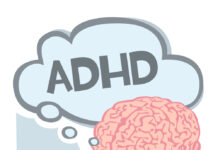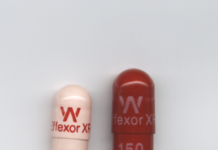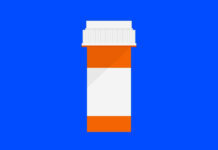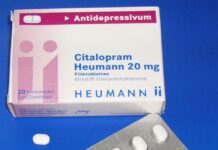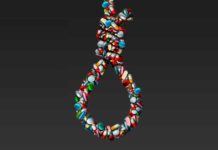Psychiatry Defends Its Antipsychotics: A Case Study of Institutional Corruption
Jeffrey LIeberman and colleagues have published a paper in the American Journal of Psychiatry stating that there is no evidence that psychiatric drugs cause long-term harm, and that the evidence shows that these drugs provide a great benefit to patients. A close examination of their review reveals that it is a classic example of institutional corruption, which was meant to protect guild interests.
Lancet Psychiatry’s Controversial ADHD Study: Errors, Criticism, and Responses
Amid calls for a retraction, Lancet Psychiatry publishes articles criticizing the original finding and a response from the authors.
Researchers Search for Subgroups Where Antidepressants Are More Effective
The researchers theorized that this increased effectiveness was due not to “antidepressant” properties, but rather to the drug’s side effects, which include insomnia, drowsiness, and nausea.
Big Pharma Funds “Independent” Advocacy Groups
From The Intercept: Several seemingly independent advocacy groups have recently published advertisements opposing newly proposed legislation that would lower drug prices. In fact, the organizations have undisclosed...
Researchers Question Link Between Genetics and Depression
A new study, published in the journal Molecular Psychiatry, found no link between genetics and the occurrence of depressive symptoms.
Have we Overestimated the Effectiveness of Psychotherapy?
From The British Psychological Society: A recent meta-analysis has raised concerns about the validity of previous studies on the effectiveness of psychotherapy, calling their methodology and...
‘Do Antidepressants Work?’ is the Wrong Question
“This research points to the inadequacy of asking the simple question: ‘Do antidepressants work?’ Instead, the value or otherwise of antidepressants needs to be understood in the context of the diversity of experience and the particular meaning they hold in people’s lives.”
New Data Show Lack of Efficacy for Antidepressants
An article published this month in the journal BMC Psychiatry suggests that there is a lack of efficacy for SSRIs and that they significantly increase the risk of serious side effects.
Brain Scans Cannot Differentiate Between Mental Health Conditions
A new study analyzing over 21,000 participants found that differences in activation of brain regions in different psychological “disorders” may have been overestimated, and confirms that there is still no brain scan capable of diagnosing a mental health concern.
How ‘Premenstrual Dysphoric Disorder’ was Created by Pharma
For MinnPost, Susan Perry discusses that the pharmaceutical industry played in the creation of the ‘mental disorder’ known as premenstrual dysphoric disorder or PMDD....
Review Questions Long Term Use of Antipsychotics
Patients who recover from a single episode of psychosis are often prescribed antipsychotics long-term, despite a lack of evidence for this practice
Safety Analysis Weighs Harms and Benefits of Antipsychotic Drugs
The researchers find that the drug effects for reducing psychosis are small and that treatment failure and severe side effects are common.
German Psychologists Declare “the Drugs Don’t Work”
Jürgen Margraf and Silvia Schneider, both well-known psychologists at the University of Bochum in Germany, claim that psychotropic drugs are no solution to mental...
Ioannidis Questions Strength of Psychology and Neuroscience Literature
Last week, well-known Stanford scientist John Ioannidis and his colleague Denes Szucs released a new analysis online. They examined research published in eighteen prominent...
Study Finds ADHD Drugs Alter Developing Brain
A new study, published in the JAMA Psychiatry, investigates the effect of stimulant ‘ADHD’ drugs on the brains of children and young adults. The...
Despite Official Recommendations, Depression Screening in Children is Not Supported by Research
Earlier this year, the US Preventative Services Task Force (USPSTF) came out with the controversial recommendation that all adolescent and adult patients undergo depression...
Interview: Researchers Deconstruct Ghostwritten Industry Trial for Antidepressant
Researchers, Jon Jureidini, Jay Amsterdam and Leemon McHenry, have taken a closer look at the data from a randomized control trial of citalopram (Celexa) that was ghostwritten and then used by the manufacturers to support claims of the drug’s efficacy and safety in the treatment of child and adolescent depression. To get the background on this story, we connected with Dr. Leemon McHenry, an investigator in this study and a lecturer in philosophy at California State University, Northridge.
Antidepressants Do Not Prevent Suicides, May Increase Risk
When the CDC released data revealing an increasing suicide rate in the US, some experts, speaking to major media outlets, speculated that the increase...
Lancet Editorial Points to “Trouble with Psychiatry Trials”
While clinical trials make up the “bedrock of evidence-based medicine” in other specialties, psychiatry faces a number of both ethical and scientific problems related to its use of randomized control trials. According to a new editorial in The Lancet Psychiatry, the field of psychiatry research has particular problems with ethical issues in recruitment, inaccurate classification systems, and controversial placebo comparisons, and then, once the studies are finished, it often remains unclear what the “outcomes actually mean for people’s lives.”
Flibanserin’s ‘Effects’ Do Not Outweigh Harms, Review Finds
Despite concerns about the risk to benefit ratio, the FDA approved flibanserin (Addyi) to treat low female sexual desire in August. In a new...
Therapy Recommended As First Line Treatment for Depression
Following an extensive systematic review of treatments for major depression, the American College of Physicians (ACP) issued a recommendation to clinicians suggesting cognitive behavioral therapy (CBT) as a first-line treatment for major depressive disorder along with second-generation antidepressants. The results of the review revealed that CBT and antidepressants have similar levels of effectiveness but that antidepressants present serious side-effects and higher relapse rates.
“How Open Data Can Improve Medicine”
“Those who possess the data control the story.” In the wake of the reanalysis of the infamous Study 329, where scientific data claiming the antidepressant Paxil was safe and effective for teens was egregiously manipulated, researchers are pushing for open access to raw data. “The issue here, scientists argue, is that without independent confirmation, it becomes too easy to manipulate data.”
Researchers Test Harms and Benefits of Long Term Antipsychotic Use
Researchers from the City College of New York and Columbia University published a study this month testing the hypothesis that people diagnosed with schizophrenia treated long-term with antipsychotic drugs have worse outcomes than patients with no exposure to these drugs. They concluded that there is not a sufficient evidence base for the standard practice of long-term use of antipsychotic medications.
“With Sobering Science, Doctor Debunks 12-Step Recovery”
NPR interviews Dr. Lance Dodes, author of The Sober Truth: Debunking the Bad Science Behind Twelve-Step Programs and the Rehab Industry. Despite the fact...
New York Times Issues Correction on RAISE Study Report
Last Tuesday, The New York Times and several other outlets (including Mad In America) reported on the highly-touted results of a study on psychosocial treatment for patients diagnosed with schizophrenia. Now, claims made about the study, which the ‘Times called “the most rigorous trial to date,” are coming under increased scrutiny.


